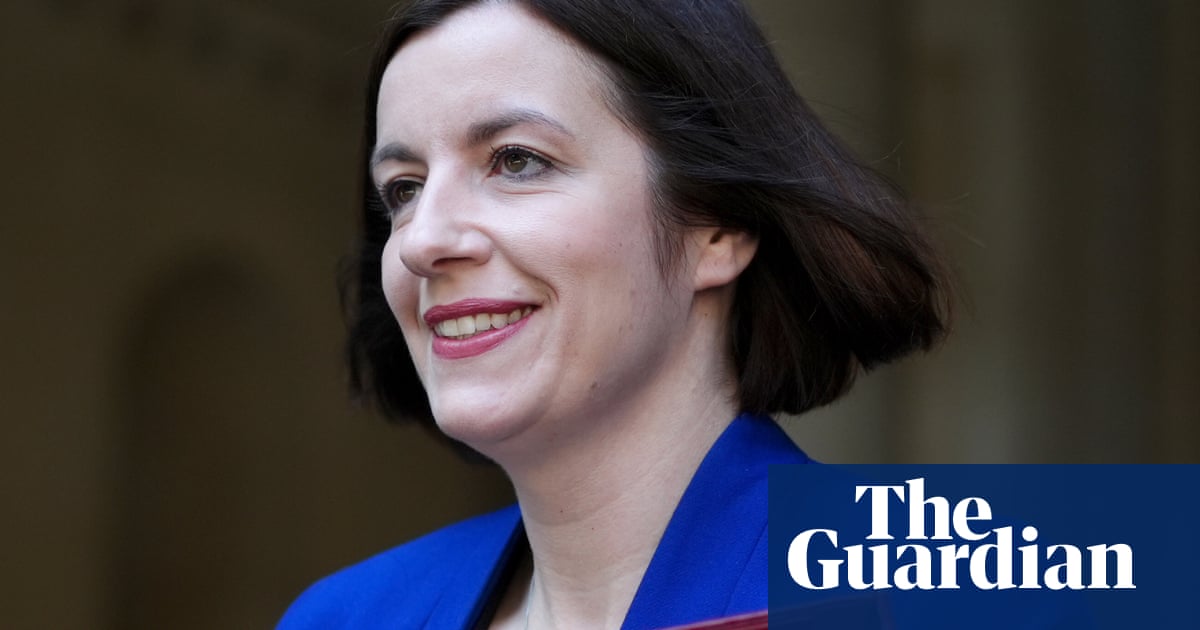The Labour government’s “moral purpose” is for fewer children to grow up in poverty, the education secretary has said, in the strongest hint yet that ministers intend to end thetwo-child benefit limit.
Bridget Phillipson said to those charities that have been campaigning for an end to the restriction: “We hear them … We want to make this change happen, and it will be the moral mission of this Labour government to ensure that fewer children grow up in poverty.”
She said the government had to pay heed to the cost of ending the policy, estimated at about £3.5bn, and that the final decision would be reached as part of the child poverty taskforce she co-chairs.
“It’s why I’m in politics. It’s what thisLabourgovernment is all about. We will make different decisions to support children and families,” she said. “That is the moral purpose of this Labour government. We are determined to bring down the numbers of children growing up in poverty. I know myself the impact it has. I’ve experienced it myself growing up. So it’s really personal to me.”
Phillipson said the government was already taking significant steps via an expansion of funded childcare, cheaper school uniforms and breakfast clubs, and she said allowing parents to work more hours was crucial to alleviating poverty.
Charities have said the two-child benefit limit is one of the key drivers of child poverty. Recent research has suggested about 100 children are pulled into poverty every day by the limit, meaning up to 20,000 could be affected by a six-month delay.
Phillipson said it remained part of the government’s considerations. “I’ve always been clear that it’s on the table,” she said. “The price tag associated with this is big. But what I would also say, where it comes to the price tag, the cost of inaction is also incredibly high, because this scars the life chances of children in our country.
“That’s devastating for those children and families, but actually, for all of us as a society, we miss out on the tremendous contribution and talent of so many people.”
Asked why ministers would not take action faster, Phillipson told BBC Radio 4’s Today programme: “They are not changes that a Labour government would ever have introduced. But seeking to unwind that and to change the social security system is not easy, and it costs a lot of money, and we’ve got to get this right.”
Her comments come on the day the Reform UK leader, Nigel Farage, is expected to back ending the two-child benefit limit. But the Conservatives have attacked Labour and Reform for considering the change, which is not broadly backed by the wider public in polls, saying people should take responsibility for the numbers of children they have.
Phillipson said that was an unfair critique in many cases. “I’ve had conversations with people I represent, with constituents who made perfectly reasonable and rational decisions to have a number of children, to have three children, say, and something terrible happens in their lives.
“In the case of one constituent I met, they lost their partner who died unexpectedly, they then find themselves unable to access the full support that they had anticipated for their whole family, even when they made what was a perfectly reasonable choice around family size.”
Phillipson said the changes to the rules “actually haven’t had an impact on the decisions that people are making around family size, all it has done has pushed more children into poverty”.
But she said ending the limit was “not the only way that we can make change happen. It’s crucial that we consider it … there are lots of ways we can do this, but the commitment that I will give to you … is that this Labour government is determined to ensure that fewer children grow up in poverty, and we will do what is necessary to make that a reality.”
